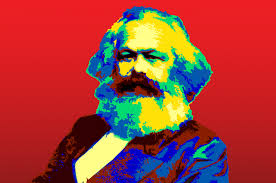
Winemakers with property on the steep hillsides that overlook Germany’s Mosel River between Trier and Koblenz enjoy a worldwide market for their cooly aromatic, austerely-structured white wines. The road to success in the Mosel hasn’t always been paved with euros, however. For most of the 19th century, the region was trapped in a vicious cycle of low regard, weak demand, and depressed prices.
In 1842, the 24 year-old editor of the Rheinische Zeitung — a start-up newspaper dedicated to supporting reformist causes — wrote and published a series of articles on the subject. In them, the youthful Karl Marx blamed the Prussian state for the miserable conditions, citing its censorship of news about the dispute and its callous view that winemakers had only themselves to blame for their plight.
Marx admitted that fewer properties making better quality wine would likely improve the situation, but asked whether the state had the right to demand that families whose livelihood had for generations been based on viticulture turn to growing potatoes as the price of continued physical survival.
Should any administration have the authority to require its citizens to adapt themselves to whatever institutions are presently in place in order to co-exist with them, he asked. Must a population “transform its customs, its rights, its kind of work and its property ownership to suit the administration”? A more appropriate and humane response would be one in which “individuals carry out the work which nature and custom have ordained for them [while] the state creates conditions in which they can grow, prosper, and live.”
According to his longtime collaborator Friedrich Engels, it was the Mosel wine controversy that led Marx “from pure politics to economic relationships and so to socialism.”
By the end of 1842, the young newspaper was suppressed and its upstart editor thrown out of work. In To the Finland Station (1940) Edmund Wilson wrote that this act had less to do with Rheinische Zeitung’s defense of the Mosel winegrowers than with some slanderous comments made by a rival publication which accused the paper and its editor of communist tendencies.
“Karl Marx knew very little about communism,” Wilson reports, “but he decided to study the subject forthwith.”
-Stephen Meuse
Taste, talk, was learn about wine this week in the FKC wine corner . . .
THURSDAY, FEBRUARY 7 3-6 PM – NATURE AND CUSTOM
2016 Quinta Ameal Vinho Verde, $17.95
2017 Domaine des Bacchantes Côtes du Rhone, $17.95
FRIDAY, FEBRUARY 8 3-6 PM – GROW, PROSPER AND LIVE
2017 Kurt Angerer “Kies” Gruner Veltliner, $18.95
2016 Fatalone Gioia del Colle Primitivo, $21.95